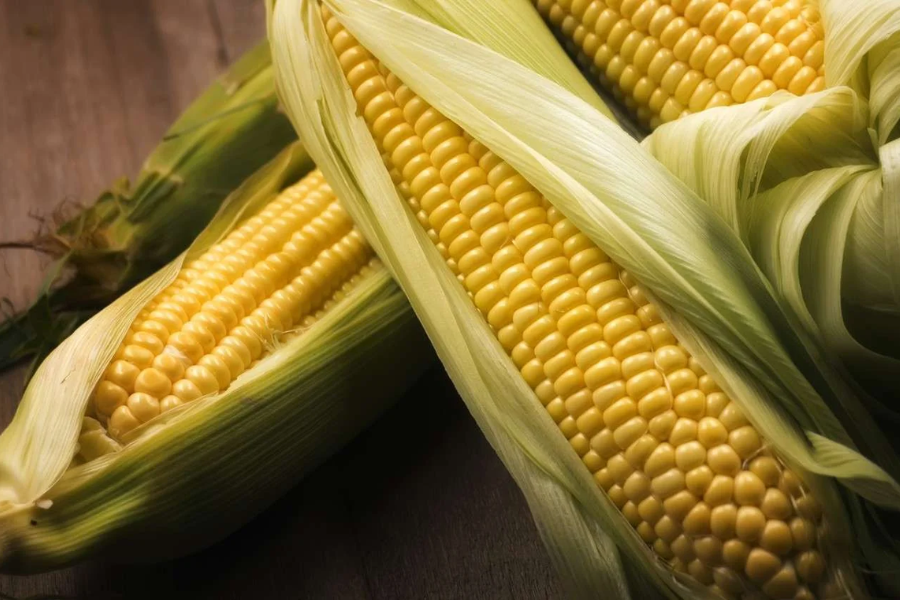FPO Corn: Empowering Farmers Through Revolutionary Maize Trade
Imagine a world where farmers take control of their futures, reshaping the trade of maize to their advantage. FPO corn is leading this change. It’s no longer just about cultivating crops; it’s about creating opportunities and uplifting communities. With the right support and resources, farmers are breaking free from traditional constraints and tapping into new potentials within maize markets.
This innovative approach is transforming the agricultural landscape by addressing the persistent challenges faced by farmers. The emergence of FPO (Farmer Producer Organizations) corn represents more than a shift in trading methods—it’s an evolution aimed at sustainability, profitability, and collective growth.
Are you ready to discover how FPO corn is reshaping maize trade? Let’s explore the impactful changes this movement brings to farmers everywhere.
The Current Landscape of Maize Trade for Farmers
Maize trade has long been a crucial income source for farmers globally. However, many smallholder farmers encounter significant barriers when trying to access markets. Price volatility and a lack of bargaining power often leave them disadvantaged.
Recently, global demand for maize has surged, presenting opportunities for producers. Yet, these benefits frequently fail to reach those who need them most. Middlemen often dominate the supply chain, cutting into profits and impacting farmers’ livelihoods.
Furthermore, climate challenges pose additional hurdles, affecting yields and crop quality. This unpredictability complicates trading efforts, leaving many farmers trapped in a cycle of uncertainty as they strive to meet market demands.
The current scenario calls for innovative solutions to effectively empower farmers. Exploring alternative approaches can help bridge the gaps in this critical sector and enhance the economic stability of maize growers everywhere.
How FPO Corn is Revolutionizing the Trade
FPO Corn is transforming the maize trade for farmers by organizing them into Farmer Producer Organizations (FPOs), which enhances collective bargaining power. This change enables farmers to negotiate better prices, ensuring they receive fair compensation for their hard work.
Additionally, FPO Corn improves access to essential resources like high-quality seeds and fertilizers. Farmers can now share knowledge and best practices within their groups, fostering a collaborative environment that boosts productivity.
By streamlining the supply chain, farmers can reduce their reliance on middlemen, increasing their profit margins directly. They gain more control over pricing and distribution channels.
Moreover, FPOs often provide training programs focused on sustainable farming practices, empowering farmers with skills that enhance both yield and soil health—key elements for long-term agricultural success.
In this new era of maize trading, collaboration takes center stage, transforming how farmers engage with markets and strengthening community ties across regions.
Advantages of FPO Corn for Farmers
FPO corn offers a wealth of benefits for farmers looking to improve their profitability and sustainability. This model promotes collective strength, allowing farmers to pool resources and share knowledge.
By forming Farmer Producer Organizations (FPOs), farmers gain greater bargaining power in the marketplace, leading to higher prices for their maize compared to traditional selling methods.
Access to technology represents another significant advantage. FPOs typically provide training on best agricultural practices, pest management, and crop rotation techniques that can lead to improved yields.
Furthermore, FPO corn enables streamlined supply chains, allowing farmers to connect directly with buyers, thus minimizing reliance on middlemen who often take a significant portion of profits.
With enhanced access to credit facilities through these organizations, many farmers find it easier to invest in quality seeds and fertilizers. This financial support encourages more sustainable farming practices that safeguard both their livelihoods and the environment.
Challenges and Solutions
Despite the numerous benefits, farmers encounter several challenges with FPO corn. The initial costs of setting up these organizations can discourage participation, as many small-scale farmers lack the capital needed for essential infrastructure.
Additionally, accessing markets can be difficult. Farmers may struggle to connect with buyers who recognize the quality of their produce, often resulting in financial losses.
Education and training are vital for the successful adoption of FPO practices. Not all farmers have access to information about best practices or technological advancements that could enhance productivity.
However, viable solutions exist. Governments and NGOs can offer targeted financial assistance to smaller farms. Workshops on modern farming techniques can empower local growers.
Building cooperative networks enables farmers to share resources and knowledge effectively. By coming together, they can create a stronger market presence, ensuring better prices for their crops.
Advancements in technology provide tools such as mobile applications that connect producers directly with consumers, streamlining sales processes and reducing middlemen interference.
Success Stories from Farmers Utilizing FPO Corn
Farmers across the nation are witnessing remarkable successes through FPO corn initiatives. Consider Rajesh, who transformed his modest maize farm into a thriving enterprise by joining a local Farmer Producer Organization (FPO). With collective bargaining power, he secured better prices and reduced input costs.
In another inspiring story, Meera utilized the resources provided by her FPO to access advanced farming techniques, resulting in boosted yields and improved corn quality. She is now able to supply larger markets that were previously out of reach.
Then there’s Arun, who benefited from shared machinery within his FPO. By significantly cutting down on equipment rental and maintenance expenses, he saved enough to reinvest in his crop cultivation practices.
These success stories illustrate how FPO corn is empowering farmers like never before, creating pathways for growth and sustainability in maize trade.
The Future of Maize Trade with FPO Corn
The future of maize trade looks promising, especially with the rise of FPO corn. As farmers increasingly unite to form Farmer Producer Organizations, they gain collective strength and enhanced bargaining power.
This shift encourages innovation in agricultural practices. With access to shared resources and knowledge, farmers can adopt improved farming techniques that elevate yield and quality.
Moreover, FPOs facilitate direct connections between producers and markets, eliminating middlemen and ensuring fairer prices for farmers while delivering fresh produce to consumers.
As technology continues to advance, data-driven solutions will further empower these organizations. Farmers will be able to utilize analytics to predict market trends and optimize their production schedules.
Embracing sustainability remains essential. FPO corn initiatives often emphasize eco-friendly practices that boost productivity while protecting vital ecosystems for future generations.
Summary
FPO (Farmer Producer Organization) corn is revolutionizing maize trade by enabling farmers to gain control over their market dynamics. This innovative model allows farmers to band together, enhancing their bargaining power and ensuring fair compensation for their produce. By pooling resources, farmers can access quality seeds, fertilizers, and training in sustainable practices, leading to improved yields and financial stability.
Despite the potential of FPO corn, challenges such as initial setup costs, market access, and the need for education persist. However, initiatives from governments and NGOs, along with advancements in technology, are helping to address these hurdles. Success stories illustrate the transformative impact of FPO corn, showcasing how it empowers farmers to improve their livelihoods and strengthen their communities.
As FPOs continue to rise, they promote direct connections between producers and markets, reducing reliance on middlemen. This shift fosters sustainability and innovation, paving the way for a brighter future in maize trade, marked by enhanced collaboration, increased yields, and better market access for farmers.
FAQs:
1. What is FPO Corn?
FPO Corn refers to maize produced by farmers who have organized into Farmer Producer Organizations (FPOs). This model empowers farmers to collectively negotiate better prices and access resources for sustainable farming.
2. How does FPO Corn benefit farmers?
Farmers benefit from increased bargaining power, access to quality seeds and fertilizers, shared knowledge and resources, streamlined supply chains, and enhanced credit facilities, leading to improved profitability and sustainability.
3. What challenges do farmers face with FPO Corn?
Challenges include initial setup costs, difficulties in accessing markets, and the need for education on best agricultural practices and technologies.
4. How can these challenges be addressed?
Solutions include providing financial assistance from governments and NGOs, conducting workshops on modern farming techniques, building cooperative networks, and utilizing technology to connect directly with consumers.
5. Can you provide examples of successful FPO Corn initiatives?
Yes, many farmers have reported success stories, such as Rajesh, who improved his profits through collective bargaining, and Meera, who enhanced her yield and market access by utilizing resources from her FPO.
6. What is the future of maize trade with FPO Corn?
The future looks promising, with a focus on innovation, sustainability, and direct market connections. FPOs are likely to continue empowering farmers, improving yields, and ensuring fair prices while promoting eco-friendly practices.
7. How does FPO Corn contribute to food security?
By improving yields and quality of produce, FPO Corn initiatives help ensure a stable food supply, contributing to greater food security in communities.
Stay in touch to get more news & updates on Sweatlar!






